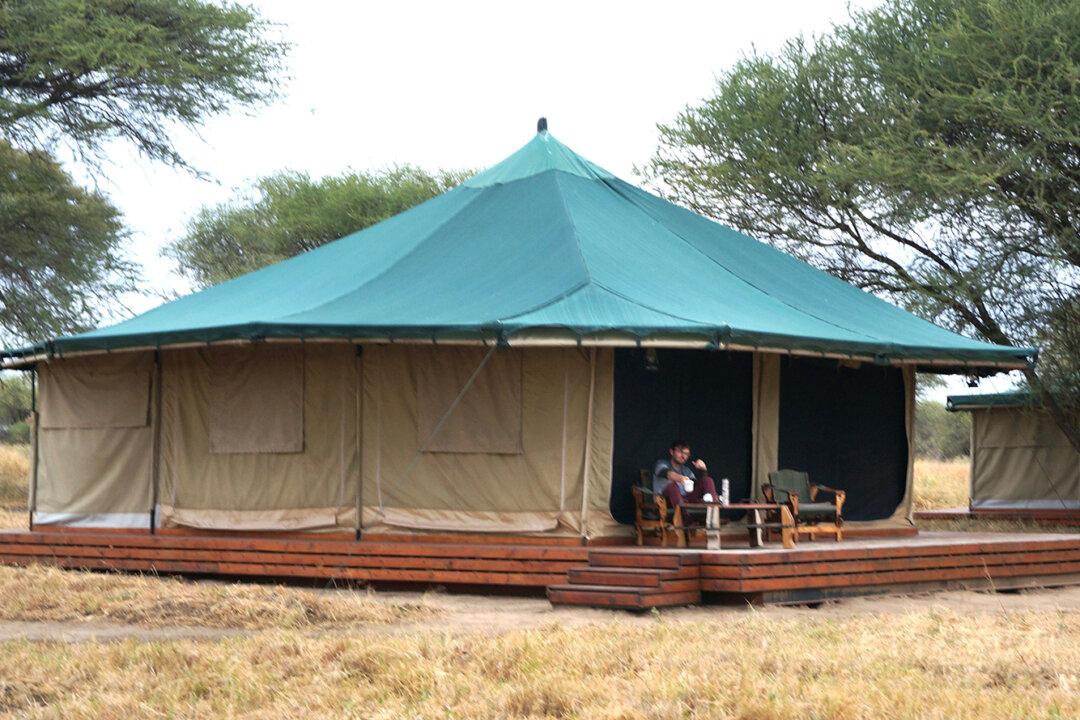You wake up to a cacophony of birdsong as the sky lightens. Propping yourself on pillows, you scan the wild African landscape out the front screen of the room. An impala noiselessly strides past while a bird swoops into view, a flash of shimmering blue, orange and green.
Hot tea awaits you on the veranda. As you sip, you imagine what you’ll see on safari today. Perhaps a mother lion and her cubs or a troop of playful baboons.
Who would expect such luxury in the Tanzanian wilderness? But such is a typical morning at Honeyguide Tarangire Camp, a tent-lodging concept that puts safari goers closer to the wildlife they come to view. The camp’s 10 tents aren’t the poles-and-nylon-fabric variety but rather cozy suites with a range of creature comforts—and with the feel of being in the wild because, well, they are.
Our group of six travelers signed up for a night at Honeyguide as part of a two-day safari last summer. Before it, we had completed the long trek to the top of Mount Kilimanjaro, and now we needed some winding down time. On day one, our safari driver took us to the Ngorongoro Crater, where we spotted at least 15 different animals and even more species of birds as we jostled along trying to hold our binoculars steady. By the time we arrived at the camp, the night sky was displaying a burst of stars.
Honeyguide is one of the latest in a series of small resorts to open within Tarangire National Park in northern Tanzania. The park is known for its distinctive baobab trees and abundant elephant herds, but other four-legged inhabitants are as varied as giraffes, zebras, wildebeests, lions and jackals. The camp is a tidy oasis amid the untamed landscape.
Camp manager Raymond Teekishe welcomed our group, handing each of us a flashlight. Affable and witty, he won us over immediately with his smile and continual one-liners. Dinner would be ready soon, but first his staff would show us to our assigned tents. I was slightly alarmed to learn that these escorts were guiding us as a precaution, in case a wandering nocturnal animal was a little too curious. My heart was beating fast during the short walk in pitch darkness. But once inside the zipped-up tent, I felt perfectly safe.
The tents are built on platforms with a deck surrounding their four sturdy canvas walls. One of the walls zips open to a screen, providing a front-yard view of the bush. Always seeking to be one with nature, my tentmate and I kept our screen open for the night and were rewarded with the distant sound of hyenas “laughing” and, in the morning, a sun rising to a soundtrack of birds trying to outdo one another.






